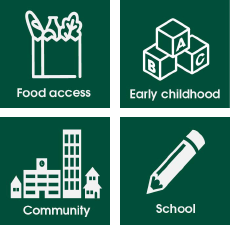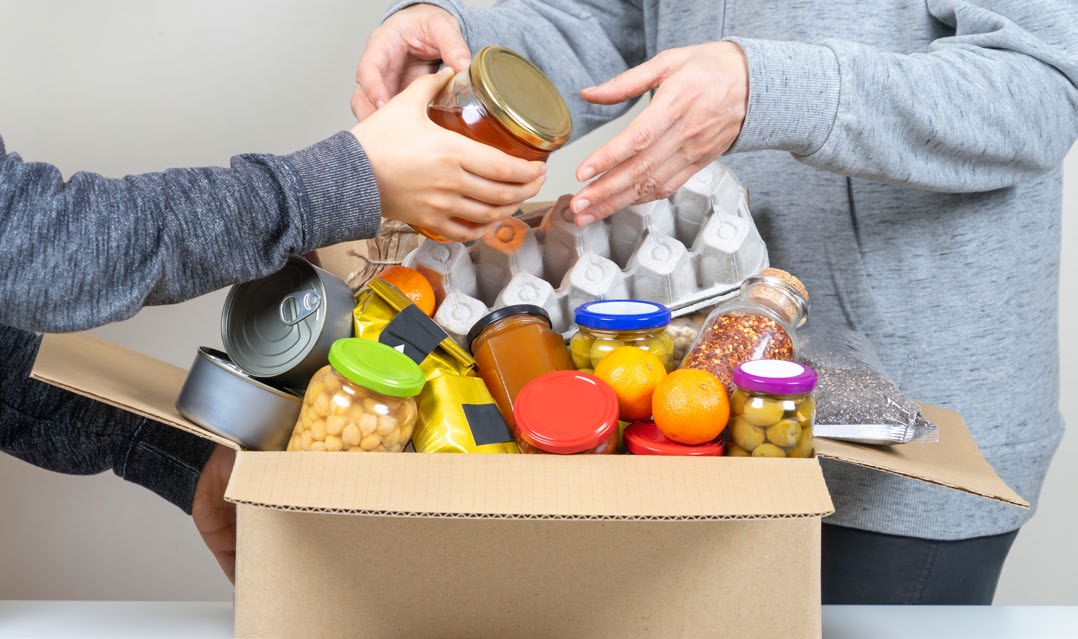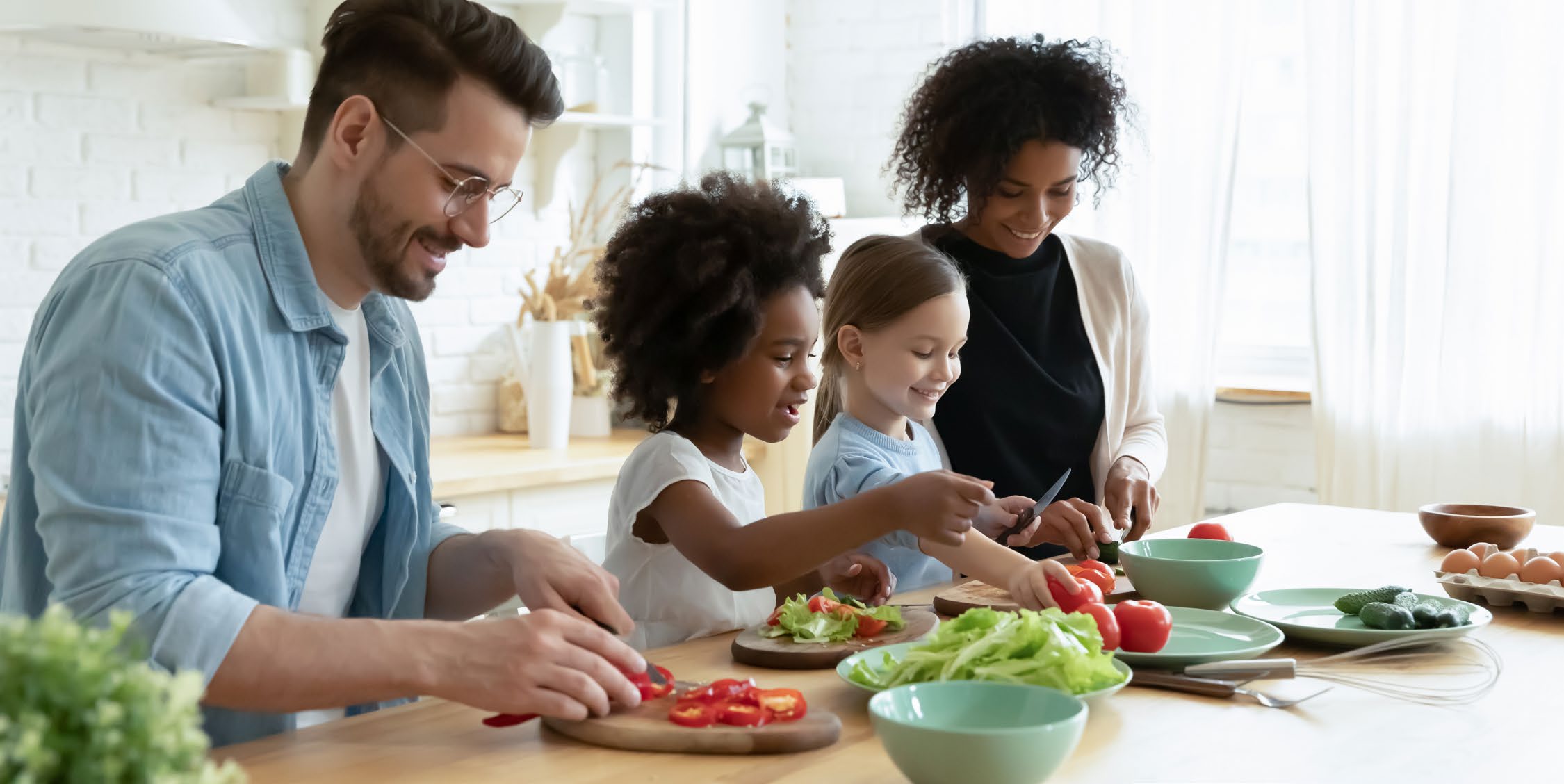
Empowering Michiganders to Lead Healthier Lives Through Nutrition & Physical Activity Education
DOWNLOADJune 23, 2022 - Becky McKendry, Michigan State University Extension
Impacts
Through MSU Extension’s nutrition and physical activity programming, Michigan adults, families and children gained crucial knowledge about nutrition and healthy foods, increased their daily physical activity and reduced their food insecurity. Participants had the following improvements after completing nutrition and physical activity programming through MSU Extension:
- 42% of adults reported eating more fruits or vegetables every day.
- 77% of students in kindergarten through second grade reported being willing to try new foods offered at school.
- 29% of students in sixth through 12th grade reported decreasing their soda consumption.
- 44% of adults reported increasing their physical activity.
- 92% of adults reported positive change in one or more food groups.
- 253 nutrition or physical activity policy, system or environmental changes were made in 83 sites.
- 342,121 adults and youth reached through MSU Extension's in-person and virtual nutrition education programming.
- 299,437 individuals reached through indirect outreach by MSU Extension's nutrition and physical activity education, including educational videos, social media postings, podcasts, articles and fact sheets.
- 17,574 adults and youth reached at 83 sites through policy, systems and environmental (PSE) change coaching, resulting in 253 nutrition and physical activity changes.
Priority Areas
- Delivering evidence-based, hands-on nutrition and physical activity learning opportunities.
- Empowering youths, adults and families with limited resources by sharing the information and strategies they need to make healthy behavior and lifestyle choices.
- Promoting active lifestyles and healthy habits.
"We created a written policy that all snack foods brought into the building and/or offered by the staff shall be healthy and that 75% of all food for events will follow MyPlate recommendations. Staff made the switch to offer less processed snack items in the lobby and replaced them with fresh fruit, dried fruit, nuts and water." -Southwest Community Justice, Wayne County (partner)
Connecting Through Innovative Virtual Education
Throughout 2021, MSU Extension’s virtual education continued to expand our ability to reach participants to deliver nutrition and physical activity programs and messages. Overall, MSU Extension:
- Delivered 4,118 virtual and 93 hybrid programs.
- Conducted 40 classes over the phone for audiences that were unable to participate virtually, a new offering this year.
- Reached 299,437 adults and youth through indirect education.
Adding to our virtual outreach, the MI Health Matters social media campaign produced an additional 32 short-form educational videos. These videos give viewers the tools they need to increase their physical activity and intake of fruits and vegetables by providing interesting information, cooking tips and recipes in a convenient format.
The MSU Extension Facebook library now includes 275 videos related to food, nutrition, and physical activity. A total of 518,549 people were reached through social media posts, including on Facebook (584 posts), YouTube videos (45 new videos with a library of 130) and Instagram (86 posts).
- 228,595 users on Facebook
- 3,923 reached through Instagram
- 17,010 engaged on Pinterest
Ten Neighborhood Nutrition podcasts were developed to educate listeners on healthy food preparation and on making the most out of your food dollars. Listen to the podcasts at canr.msu.edu/nutrition/neighborhoodnutrition.
MSU Extension’s nutrition and physical activity team also works to make its vast library of virtual content accessible to many audiences. All videos created in FY2021 have closed captioning as well as spoken audio, to bring content to those who use assistive technology such as screen readers. All images and infographics posted on social media platforms also feature alternate (alt) text to increase accessibility for audience members with visual impairments.
"I really have enjoyed watching the various recipes being made on the MI Health Matters YouTube channel." -Youth Participant from Ionia County
MI Health Matters Social Media
- 518,549 total reach through social media posts.
- 228,585 people connected on MI Health Matters Facebook page.
- 3,923 people engaged on Pinterest
- 502 educational videos viewed on YouTube
"One thing that I will continue to do is pay more attention to the food labels. You never know how many empty calories they [beverages] contain!" -Eat Healthy, Be Active participant
Making The Healthy Choice The Easier Choice
Our health is heavily influenced by the places where we live, work, learn and play. MSU Extension collaborates with community partners to help assess the need for and implement nutrition and physical activity policy, system and environmental changes, or PSEs. PSE work focuses on changing environments like schools, workplaces and community centers to make healthier choices easier for everyone—such as switching out the sugary beverages in a vending machine for healthier options like bottled water.
Over 780 organizations partnered with MSU Extension to make a PSE change in 2021. These types of changes involved modifying guidelines, practices and environmental factors to make healthy choices practical and available.
In FY2021, the most frequent types of changes MSU Extension recorded included:
- Increasing or improving opportunities for nutrition education.
- Incorporating physical activity throughout the school day or during classroom-based instruction.
- Initiating or improving opportunities to access fruits and vegetables.
- Improving food pantries to enable clients to choose what food they would like to take.

"We can now create a park atmosphere that is known for making good health and nutrition choices the easy choice for all of our visitors."PSE partner
Prioritizing Food & Nutrition Security

The COVID-19 pandemic exacerbated Michigan residents’ problems with reliable access to nutrient-rich foods. This was shown to be especially true for households with children and with racial and ethnic minorities.
In FY2021, MSU Extension community nutrition instructors continued to contribute to efforts throughout the state focused on supporting access to and consumption of vegetables and fruit. MSU Extension staff members delivered relevant and practical nutrition education—a key component of the Fruit and Vegetable Prescription Programs model.
In addition to education and support, targeted participants receive vouchers to purchase produce at local farmers markets and retail settings. Community nutrition instructors serve as trusted resources for participants navigating farmers markets, where they encourage use of additional food resources such as Double Up Food Bucks.
MSU Extension community nutrition staff members also partnered with MSU Extension Master Gardeners to support increased fresh produce donations to food pantries. Community nutrition instructors contributed to the harvest of over 600 pounds of fresh produce with the help of about 40 volunteers.
Throughout the state, MSU Extension staff members engaged in innovative and localized needs to increase availability of healthy food choices. This work included connecting families from targeted early childcare sites to regular produce boxes, supporting the development of school-based food pantries, using a public bus system to reach rural residents in food-insecure areas and establishing one of the first (if not the first) licensed community “freedge,” or free-food refrigerator, in Michigan.

"The support of MSU Extension has been invaluable to the Foundation’s commitment to comprehensive nutrition-based pantry services. MSU Extension has collaborated with us on program assessments, product evaluation, menu design, recipes, cooking demonstrations and guidance with food program decisions and direction." -Food pantry partner
"I've been exercising at least 30 minutes every day! I have changed the way I cook vegetables and am roasting a variety of vegetables now." -Participant from Ogemaw County
"The Thumb Blessing Boxes initiative hosts 18 support boxes strategically located throughout Tuscola County. The boxes are filled with donated food, personal hygiene products, paper products, etc. One Thumb Blessing Box was placed on a Thumbody Express bus to support passengers. Since the box was placed on the bus in June 2021, the Blessing Box has been available for over 900 ride trips." -Food pantry partner
To support nutrition and physical activity programming, contact Deanna East at eastd@msu.edu. To bring nutrition and physical activity programming to your community, contact Becky Henne at henner@msu.edu or Imelda Galdamez at galdamez@msu.edu.
Partners and organizations that are interested in referring participants to our SNAP-Ed or EFNEP programs can submit referrals at https://bit.ly/3xt5A3P.



 Print
Print Email
Email





